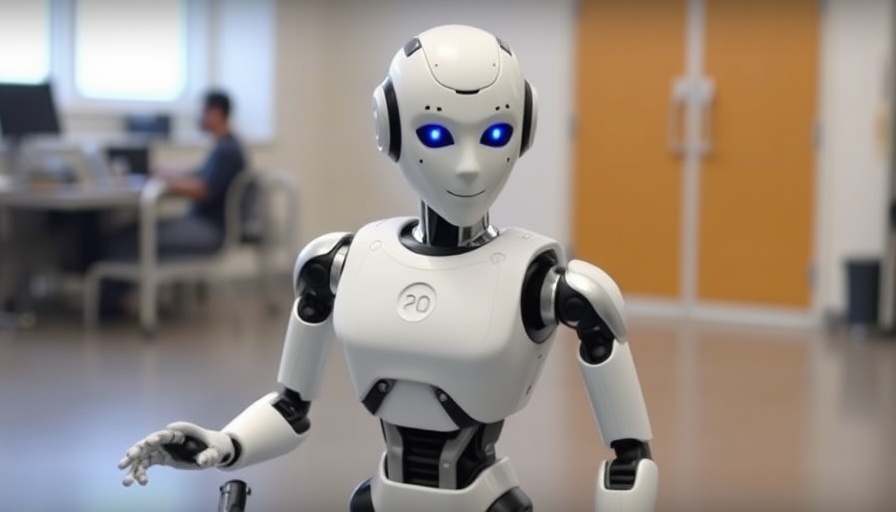
A Leap Forward in Robotics: Atlas's Generalized Learning
The world of humanoid robots is evolving rapidly, and Boston Dynamics’ Atlas is leading the charge with groundbreaking innovations that signal a new era in robot intelligence. Unlike traditional systems that require separate models for different tasks, Atlas can now master both walking and grasping using a single artificial intelligence (AI) model. This primary advancement exemplifies the potential for robots to exhibit generalized learning—an important step toward creating versatile machines that can adapt to various environments and tasks.
What Makes Atlas Special?
Atlas is not just doing the robotic equivalent of juggling; it's showcasing a sophisticated command of movements that allow it to imitate human-like behaviors effectively. By integrating visual sensors, proprioception data, and language prompts, the robot learns from a broad spectrum of examples. This innovative approach enables Atlas to coordinate its limbs fluidly, using its legs much like additional hands to maintain balance while reaching for low-placed items.
Emerging Skills: A Glimpse into the Future
One of the most fascinating aspects of Atlas's development is its emergent behavior—surprising capabilities that manifest beyond what the model was explicitly taught. For instance, when it drops an object, Atlas instinctively bends down to pick it up—a skill that hasn't been directly programmed. This level of adaptive learning hints at a future where robots could tackle unforeseen scenarios with minimal human intervention.
A Game Changer for Entrepreneurs
For entrepreneurs and small business owners, the implications of AI advancements like Atlas are profound. With the rise of AI automation for entrepreneurs, businesses can look forward to smarter task management and increased versatility in operations. Consider how utilizing AI tools can streamline workflows, manage customer relations, or even perform tasks that were once thought to require human discretion. The integration of such technology could produce not just increased efficiency but also new business models.
Practical Insights: How to Leverage AI in Small Business
To capitalize on the benefits of AI, small business owners need to start incorporating AI apps in their operations. Here are a few actionable insights on getting started:
- Identify Pain Points: Analyze your operations and identify areas where automating repetitive tasks can save time and increase efficiency.
- Explore AI Tools: Research the best AI apps for business owners tailored to your specific needs, such as customer support chatbots or inventory management systems.
- Invest in Training: Train yourself and your team on how to use AI effectively to ensure you’re maximizing the technology’s value.
Future Predictions: Where Robotics Meets Business
The continued advancement of robots like Atlas indicates a future where they will increasingly become integral in various industries. As we look toward 2025, entrepreneurs might find AI business ideas blossoming in fields such as retail, healthcare, and logistics, providing unique opportunities to enhance service delivery and customer engagement.
Conclusion: Embracing the Future of AI
The integration of sophisticated AI models in robots like Atlas is just the beginning. Entrepreneurs should be on the lookout for AI business ideas and the latest innovations that can help streamline their operations and improve productivity. As we witness these developments unfold, the question remains: are you ready to leverage AI in your business?
 Add Row
Add Row  Add
Add 




Write A Comment